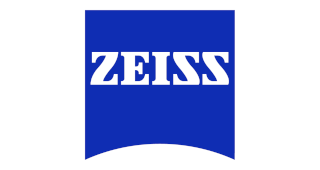Reporting and exploring the first case of crocodile tear syndrome following microvascular decompression of the trigeminal nerve
EANS Academy. Abul M. 10/06/21; 339857; EP07014

Dr. Mohammad Abul
Contributions
Contributions
Abstract
Crocodile tear syndrome (CTS) is a condition characterised by excessive tear secretion in response to eating, drinking, or smelling foods. Traditionally, it has been reported in Duane's retraction syndrome following facial nerve paralysis or in slow-growing facial nerve tumours. More recently, it has been reported following vestibular schwannoma surgery. We report the first case of crocodile tear syndrome following microvascular decompression of the trigeminal nerve (TN).
A 61-year-old lady presented with excessive lacrimation and clear rhinorrhoea one month post-operatively from a re-do trigeminal microvascular decompression surgery. The patient experienced similar symptoms following her initial surgery two years ago which had since resolved spontaneously. CT and MRI head and clinical assessment showed no evidence of CSF rhinorrhea. Comprehensive cranial nerve examination and imaging showed no specific cause for her symptoms. Otolaryngology opinion diagnosed a case of post-op, iatrogenic CTS.
Literature review revealed no reported cases of CTS following microvascular decompression of the TN. Surgical technique and relevant imaging were reviewed for any possible explanation for the condition. Considering the accepted pathogenesis of CTS, we discuss the etio-pathogenesis for the development of the condition following this procedure.
We conclude CTS should be considered in patients presenting with rhinorrhea following microvascular decompression of the TN. In patients presenting with post-op rhinorrhoea; after excluding CSF leak, CTS should be considered as a potential differential diagnosis. Treatment for CTS in this context may pose a challenge. The patient will undergo botulinum toxin injection of the lacrimal gland and she will need long term follow up. This is the first documented case of CTS post MVD for trigeminal nerve.
A 61-year-old lady presented with excessive lacrimation and clear rhinorrhoea one month post-operatively from a re-do trigeminal microvascular decompression surgery. The patient experienced similar symptoms following her initial surgery two years ago which had since resolved spontaneously. CT and MRI head and clinical assessment showed no evidence of CSF rhinorrhea. Comprehensive cranial nerve examination and imaging showed no specific cause for her symptoms. Otolaryngology opinion diagnosed a case of post-op, iatrogenic CTS.
Literature review revealed no reported cases of CTS following microvascular decompression of the TN. Surgical technique and relevant imaging were reviewed for any possible explanation for the condition. Considering the accepted pathogenesis of CTS, we discuss the etio-pathogenesis for the development of the condition following this procedure.
We conclude CTS should be considered in patients presenting with rhinorrhea following microvascular decompression of the TN. In patients presenting with post-op rhinorrhoea; after excluding CSF leak, CTS should be considered as a potential differential diagnosis. Treatment for CTS in this context may pose a challenge. The patient will undergo botulinum toxin injection of the lacrimal gland and she will need long term follow up. This is the first documented case of CTS post MVD for trigeminal nerve.
Crocodile tear syndrome (CTS) is a condition characterised by excessive tear secretion in response to eating, drinking, or smelling foods. Traditionally, it has been reported in Duane's retraction syndrome following facial nerve paralysis or in slow-growing facial nerve tumours. More recently, it has been reported following vestibular schwannoma surgery. We report the first case of crocodile tear syndrome following microvascular decompression of the trigeminal nerve (TN).
A 61-year-old lady presented with excessive lacrimation and clear rhinorrhoea one month post-operatively from a re-do trigeminal microvascular decompression surgery. The patient experienced similar symptoms following her initial surgery two years ago which had since resolved spontaneously. CT and MRI head and clinical assessment showed no evidence of CSF rhinorrhea. Comprehensive cranial nerve examination and imaging showed no specific cause for her symptoms. Otolaryngology opinion diagnosed a case of post-op, iatrogenic CTS.
Literature review revealed no reported cases of CTS following microvascular decompression of the TN. Surgical technique and relevant imaging were reviewed for any possible explanation for the condition. Considering the accepted pathogenesis of CTS, we discuss the etio-pathogenesis for the development of the condition following this procedure.
We conclude CTS should be considered in patients presenting with rhinorrhea following microvascular decompression of the TN. In patients presenting with post-op rhinorrhoea; after excluding CSF leak, CTS should be considered as a potential differential diagnosis. Treatment for CTS in this context may pose a challenge. The patient will undergo botulinum toxin injection of the lacrimal gland and she will need long term follow up. This is the first documented case of CTS post MVD for trigeminal nerve.
A 61-year-old lady presented with excessive lacrimation and clear rhinorrhoea one month post-operatively from a re-do trigeminal microvascular decompression surgery. The patient experienced similar symptoms following her initial surgery two years ago which had since resolved spontaneously. CT and MRI head and clinical assessment showed no evidence of CSF rhinorrhea. Comprehensive cranial nerve examination and imaging showed no specific cause for her symptoms. Otolaryngology opinion diagnosed a case of post-op, iatrogenic CTS.
Literature review revealed no reported cases of CTS following microvascular decompression of the TN. Surgical technique and relevant imaging were reviewed for any possible explanation for the condition. Considering the accepted pathogenesis of CTS, we discuss the etio-pathogenesis for the development of the condition following this procedure.
We conclude CTS should be considered in patients presenting with rhinorrhea following microvascular decompression of the TN. In patients presenting with post-op rhinorrhoea; after excluding CSF leak, CTS should be considered as a potential differential diagnosis. Treatment for CTS in this context may pose a challenge. The patient will undergo botulinum toxin injection of the lacrimal gland and she will need long term follow up. This is the first documented case of CTS post MVD for trigeminal nerve.
{{ help_message }}
{{filter}}





